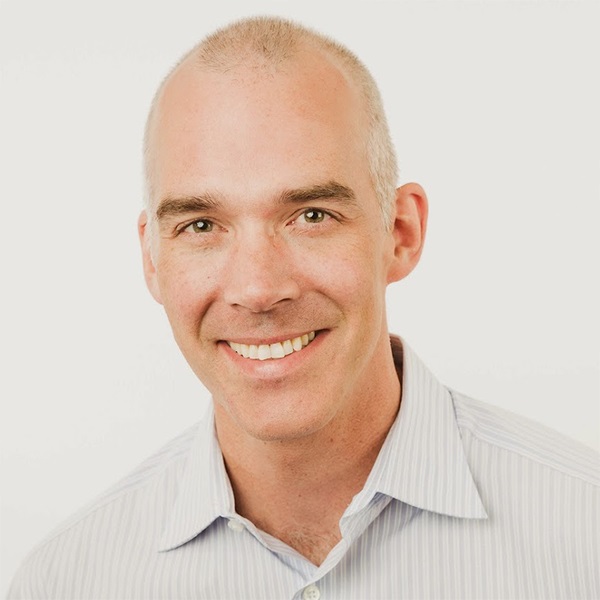Capital IdeasTM
Investment insights from Capital Group
Categories
長期投資
What’s your investment edge?
Equity portfolio manager Mark Casey recently joined Capital Group’s CEO on Conversations with Mike Gitlin for an unscripted look at his investment approach and lessons learned over a long career in Silicon Valley. What follows is an excerpt.
Long-term investing is a difficult and highly competitive discipline, and as a professional investor I am always looking for an edge — a unique insight, skill or habit — that might help me generate superior returns over time.
Two important qualities have helped me throughout my career: strong peripheral vision and a high threshold for pain in the short term.
What’s distant may be significant
I developed strong peripheral vision in the early years of my career when I was an equity investment analyst covering newspapers, digital imaging and the internet. In those days, newspapers were these incredible businesses. Warren Buffett famously bought two. They were local monopolies that didn't face serious competitive threats from other newspapers or magazines. But their economics were upended by the advance of online advertising through such businesses as Craigslist, eBay, Zillow and monster.com, an old job posting site.
People in the newspaper industry never saw this coming. Another example is Xerox, a great company that was once one of the Nifty Fifty stocks. More than anything else, I think the iPad really made that company struggle, because with the iPad you could bring all your papers to a meeting. You didn't have to print them out anymore.
The Yellow Pages were to a large degree disrupted by Google and Yelp. Cable television networks, of course, have been hurt by the advance of streaming services. But when Netflix launched and first started mailing DVDs to people's houses, I didn't think, "You know what? That's going to gut the economics of the cable networks and change that whole industry," but that's exactly what happened.
So, I learned to pay close attention to seemingly insignificant developments on the horizon and take them seriously. Now all the examples I have given were businesses disrupted by digital innovation. Rather than just relying on peripheral vision to identify threatened businesses, at some point I began to ask, "What will do well because of these digital trends?"
I have largely built my portfolios around that question. This has led me to invest in a number of digital trends — trends I expect will transform industries for years to come. Today, fewer people are watching cable TV by appointment and more often are streaming content through Netflix or Hulu. With respect to currency, people are using coins and paper money less, and I expect that digital money will take a greater share of all payments. Another example is on-premises computing, where companies like Capital Group run their data centers on their own servers, which is giving way to cloud computing. This is a potentially huge trend.
Short-term pain can lead to long-term gain
Another quality I believe has given me an investment edge is a high tolerance for short-term pain if I believe the prize at the end of the suffering is worthwhile. In other words, if I feel there's enough potential for long-term financial gain, I will be patient and hold the stock through periods of volatility.
When I ask our investment analysts to come up with a list of companies that have the highest return potential over the next five years as well as a list of companies with the greatest downside risk in the next recession, those two lists often contain the same names. People say, "You know, Mark, you own a lot of companies that could go down 30% in a recession." And I respond, "You're right. And if it does happen, I'm just going to sit there and wait it out because if it comes roaring back and achieves its long-term potential, it will be worth it."
A lot of other portfolio managers won't take that much near-term downside risk. And that's one of the great things about The Capital System™. Because our funds have multiple managers, each with different approaches, with many other managers being cautious about the next year, there's room for me to be extremely focused on eight years.
When I have conviction in a stock, even when the price drops, I can attach myself to the hull of the freighter like a barnacle, and even as the freighter goes through icebergs in the Antarctic, I can hang on for a long time. Of course, if a stock’s thesis changes, and I no longer believe future prospects are what we thought they were, then I will let go.
過去の実績は将来の成果を保証するものではありません。投資の価値および投資収益は減少することも増加することもあり、当初投資額の一部または全部を失うことがあります。本情報は投資、税務もしくはその他の助言の提供、または証券の売買の勧誘を意図するものではありません。
個人に帰属する記述は、その個人の出版日現在の意見を述べたものであり、必ずしもキャピタル・グループまたはその関連会社の意見を反映したものではありません。特に明記がない限り、すべての情報は記載された日付現在のものです。一部の情報は第三者から取得したものであり、そのため、かかる情報の信頼性については保証いたしません。
 Mark Casey
Mark Casey